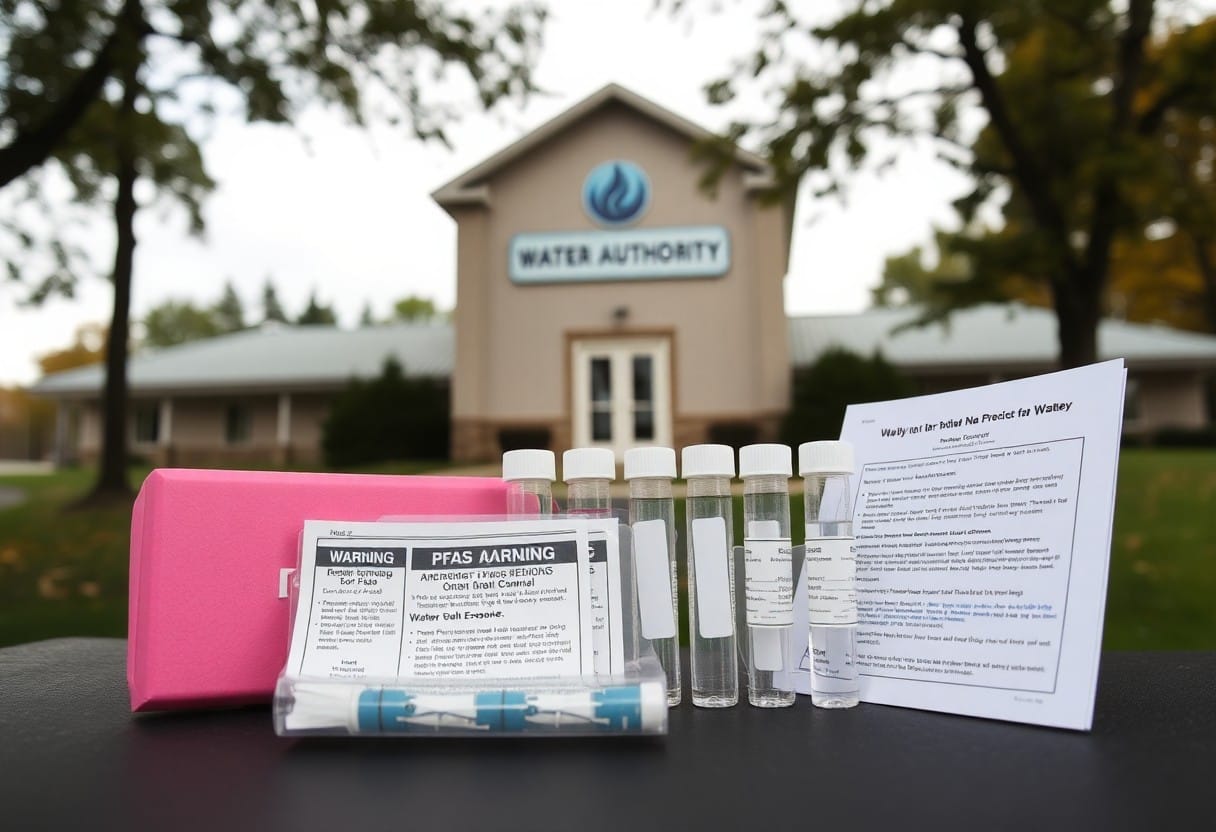Chemours has significantly impacted the Fayetteville community through water contamination, raising concerns about public health and safety. You may wonder how local businesses are adapting to these challenges while ensuring safe water access for their customers and employees. In this post, we’ll explore the innovative strategies and measures that Fayetteville businesses are implementing to address the environmental hazards associated with the contamination, highlighting both their resilience and commitment to public well-being in the face of adversity.
Overview of Chemours and Water Contamination
For many residents and business owners in Fayetteville, the issue of water contamination stems from Chemours, a chemical manufacturing company. Their operations have led to the release of harmful substances, which have negatively impacted local water supplies. This has raised concerns about public health and the safety of drinking water, prompting a response from the community and local authorities.
Background of Chemours
An American chemical company, Chemours was established in 2015 as a spin-off from DuPont, focusing on performance chemicals. Over the years, it has been involved in manufacturing various industrial products, but its practices have drawn criticism for their environmental impact, particularly related to the discharge of pollutants into local water sources.
Impact of Water Contamination on Fayetteville
Around Fayetteville, the effects of water contamination have been profound, creating challenges for both residents and businesses. Many local water supplies have been tainted, leading to anxiety about the safety of drinking water and its potential impact on health. This situation has prompted ongoing litigation and community action to hold Chemours accountable for their role in the crisis.
But the situation has also fostered a sense of solidarity among Fayetteville residents. Many have come together to demand accountability from Chemours and push for clean water solutions. This community-driven response highlights the urgency of the issue while creating opportunities for local businesses to engage in sustainability efforts. By prioritizing transparency and water safety initiatives, businesses can contribute to restoring trust and ensuring a healthier environment for you and your neighbors.
Business Responses to Water Quality Concerns
If you’re a business owner in Fayetteville, the looming threat of water contamination has necessitated swift responses. Many local establishments are actively monitoring water quality issues, as seen in the call to action from residents near Fayetteville who sue Chemours, DuPont for… Their commitment to addressing these challenges underscores the importance of maintaining trust with your customers while prioritizing safety in operations.
Adjustments in Operations
Quality assurance is now more important than ever for Fayetteville businesses. Many are implementing rigorous testing protocols to ensure that their products and services meet safety standards. These adjustments not only help in mitigating risks but also play a significant role in rebuilding trust amidst the concerns surrounding water contamination.
Strategies for Customer Engagement
Across Fayetteville, businesses are adapting their customer engagement strategies to address growing concerns about water quality. This involves transparent communication about safety measures and regular updates on water testing results. Engaging your customers in this way can foster a reliable relationship, reassuring them that their health and well-being is your priority.
Indeed, by providing transparent information through newsletters, social media, and community workshops, you can effectively keep your customers informed. When you highlight the steps taken to ensure safety and the quality of your products, such as sharing test results or partnerships with local health experts, you build credibility. This proactive approach not only engages customers but also reinforces community trust in your brand during challenging times.
Community Initiatives and Collaboration
There’s a growing sense of unity among Fayetteville businesses as they band together to address the challenges posed by Chemours’ water contamination. Local initiatives promote not just recovery, but resilience, fostering a collaborative spirit that strengthens the community. You will find various programs aimed at educating and supporting those affected, ensuring that the collective voice of local businesses is heard loud and clear.
Local Business Associations’ Efforts
Among the proactive measures taken by local business associations, advocacy for safer water practices is at the forefront. These organizations provide resources and forums for businesses to share insights, facilitate discussions, and develop action plans aimed at combating the effects of contamination. Engaging with members of your business community can strengthen these efforts, resulting in more effective strategies to protect your interests.
Partnerships with Environmental Groups
By forming partnerships with environmental groups, Fayetteville businesses are enhancing their efforts to tackle the water contamination crisis. Your collaboration with these organizations brings expert knowledge, shared resources, and community-driven solutions to the forefront, creating a robust platform for change.
Indeed, these partnerships not only amplify the visibility of the water contamination issue but also highlight the urgency of implementing positive solutions. Collaborating with environmental groups allows you to access vital information and best practices regarding the impact of contaminants on local ecosystems. These alliances foster an environment of shared responsibility, pushing your business to actively engage in more sustainable practices while advocating for cleaner water solutions on a larger scale. Together, we can pave the way for a healthier and safer Fayetteville.
Economic Impacts on Fayetteville Businesses
All businesses in Fayetteville are feeling the ripple effects of Chemours’ water contamination. The local economy, heavily reliant on agriculture and tourism, faces significant challenges. This situation threatens jobs and local revenue, urging businesses to rethink their strategies to survive and thrive despite potential future setbacks.
Financial Challenges Faced
Challenges arising from the water contamination have left many Fayetteville businesses struggling with decreased sales and increased operational costs. As concerns over water quality deter customers, local vendors must find ways to mitigate these financial strains while balancing public health responsibilities.
Adaptation and Resilience Strategies
Behind the scenes, many Fayetteville businesses are adopting innovative strategies to navigate the ongoing crisis. By prioritizing community engagement and diversifying revenue streams, local entrepreneurs are working tirelessly to restore consumer confidence while addressing environmental concerns.
Faced with significant challenges, Fayetteville businesses are proactively implementing adaptation strategies to secure their future. Some are seeking out alternative water sources, while others are investing in sustainable practices to minimize reliance on contaminated resources. By fostering partnerships with local organizations and advocating for environmental reform, these businesses are committed to building resilience, ensuring they can not only survive this crisis but emerge stronger and more community-focused in the long run.
Regulatory Actions and Their Effects
Despite the ongoing water contamination crisis, regulatory actions are being implemented to address the situation. Government agencies are working to establish stricter guidelines and necessary monitoring to manage the pollutants released by Chemours. These measures aim to not only protect residents but also to ensure that local businesses can continue to operate within a safe environment.
Government Response to Contamination
After the contamination became public knowledge, the government swiftly mobilized to assess the situation and enforce measures aimed at mitigating risks. This response involved increased testing of water supplies and heightened scrutiny of Chemours’ operations. You may notice that these actions are designed to foster transparency and accountability in dealing with the environmental threat.
Compliance and Impact on Local Businesses
For local businesses, compliance with new regulations can present both challenges and opportunities. The increased oversight may lead to operational restrictions that could impact your profitability, but they also promote community trust and environmental responsibility.
In fact, as local businesses adapt to compliance standards, many are finding ways to incorporate sustainable practices into their operations. This shift not only helps mitigate the effects of contamination but can also enhance your brand image. Adhering to these requirements may initially be burdensome; however, it also provides a unique opportunity for your business to demonstrate commitment to community health and environmental stewardship. Embracing these regulations can ultimately lead to stronger customer loyalty and a solid reputation in a cautious market.

Future Outlook for Fayetteville
After ongoing challenges with water contamination, Fayetteville businesses are poised for a cautious recovery. As Chemours to expand well testing for PFAS contamination becomes a reality, local enterprises can expect enhanced communication about water safety. With robust testing and remediation efforts in play, your community’s resilience could lay the foundation for future growth.
Long-term Business Strategies
Before addressing the complexities introduced by Chemours, local businesses are formulating strategies that prioritize environmental compliance and sustainability. By adapting to regulations, you can not only protect your operations but also position your brand as a leader in corporate responsibility.
Community Resilience Moving Forward
On this journey, partnerships between businesses and community organizations are vital. Whatever your industry, working together can foster a strong support network that helps rebuild trust and promote safety for consumers and employees alike.
In addition, initiatives focused on raising awareness and educating the community about contamination risks will further enhance local resilience. By investing in water safety measures and creating transparent communication channels, you can contribute to a more informed populace. This can transform challenges into opportunities that not only foster economic stability but also ensure a healthier environment for future generations. By actively participating in restoration efforts and advocating for ongoing support, your commitment can play an integral role in the community’s revitalization.
Final Words
Hence, as you observe Fayetteville businesses adapting to the challenges posed by Chemours’ water contamination, you will notice a mix of resilience and innovative strategies. From investing in advanced water filtration systems to fostering community partnerships, these businesses are committed to ensuring your safety and maintaining operational integrity. By staying informed and supporting local initiatives, you contribute to a collaborative effort aimed at overcoming this environmental hurdle, ultimately strengthening your community’s sustainability and well-being.



















